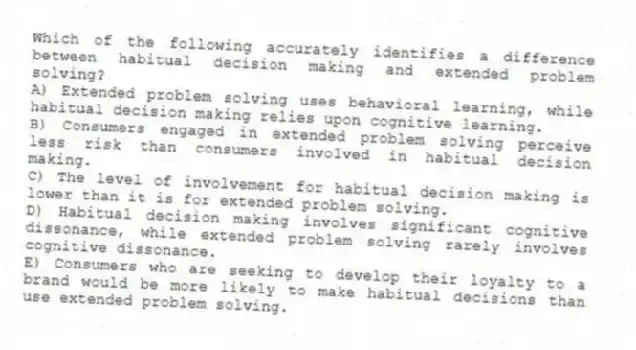
Which of the following accurately identifies a difference between habitual decision making and extended problem solving?
A) Extended problem solving uses behavioral learning, while habitual decision making relies upon cognitive learning.
B) Consumers engaged in extended problem solving perceive less risk than consumers involved in habitual decision making.
C) The level of involvement for habitual decision making is lower than it is for extended problem solving.
D) Habitual decision making involves significant cognitive dissonance, while extended problem solving rarely involves cognitive dissonance.
E) Consumers who are seeking to develop their loyalty to a brand would be more likely to make habitual decisions than use extended problem solving.
Correct Answer:
Verified
Q2: Brand loyalty in the product choice step
Q3: The process that individuals or groups go
Q5: _ occurs whenever a consumer sees a
Q7: _ are Web applications that can help
Q7: The greater the _ of a purchase,
Q9: Consumers often rely on decision guidelines, or
Q13: The consumer's _ determines whether she will
Q13: When using _, a consumer exerts little
Q16: A purchase decision made with some but
Q19: A consumer who is considering purchasing a
Unlock this Answer For Free Now!
View this answer and more for free by performing one of the following actions

Scan the QR code to install the App and get 2 free unlocks

Unlock quizzes for free by uploading documents